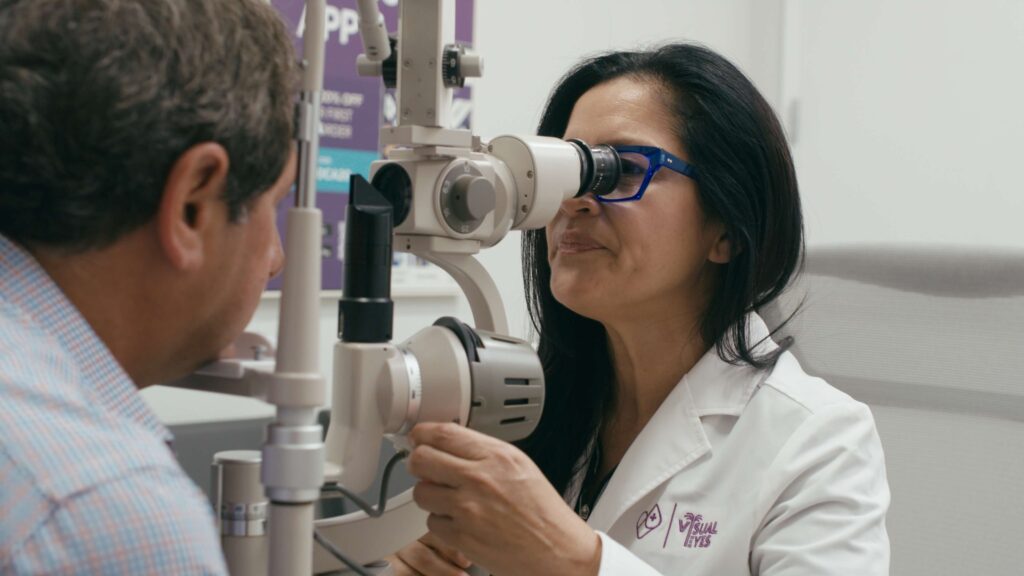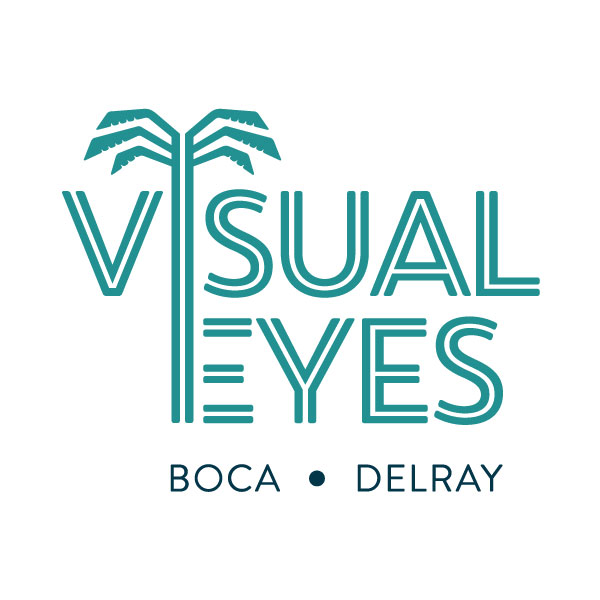What is blue light?
Blue light rays is a type of visible light rays that falls in the short-wavelength range between 390–500 nanometers. It is found in both natural and artificial sources, with some of the most common sources being the sun, LED lighting, and digital screens such as those found on phones, tablets, computer monitors, and TVs. While some blue light exposure is necessary for good health—it helps regulate our body’s natural clocks—too much exposure can lead to serious issues.
How does Blue light rays affect your vision?
Excessive exposure to blue light rays can cause a variety of problems related to your vision. In some cases, it can cause difficulty focusing or squinting while looking at screens. It may also increase sensitivity to glare or reduce contrast perception when viewing digital devices. Furthermore, prolonged exposure has been linked to age-related macular degeneration (AMD) which causes irreparable damage to the cells in your eyes’ retinas that are responsible for sharp central vision. To make matters worse, studies have shown that blue light may even interfere with your body’s production of melatonin—the hormone responsible for regulating sleep cycles—which could lead to insomnia or other sleeping disorders if not addressed properly.
How does Blue light rays affect your health?
Blue light rays may cause migraines and headaches to people who are sensitive because of the specific neural pathway from the eyes to the brain, which is separate from how vision is transmitted. There is also evidence that the wavelength of blue light creates discomfort and pain and even enhanced spreading of headache pain across the brain. Blue light also negatively affects your sleep. Exposure to blue light in the evening hours reduce the amount of melatonin our body typically produces at that time and regulates our desire for sleep. Using screens for an extended period of time before bed has been shown to disrupt sleep and lower energy and alertness the next day.
How can you protect Yourself?
Fortunately, there are steps you can take to reduce your risk of developing vision-related issues due to excessive blue light exposure. Consider investing in a pair of computer glasses with lenses designed specifically for blocking out harmful blue light rays from reaching your eyes directly; this will help reduce strain on your eyes while using digital devices for extended periods of time. Additionally, consider limiting screen time during the evening hours before bedtime so as not to disrupt melatonin production; instead opt for activities such as reading a book or listening to music that don’t require any form of digital device use. Finally, be sure you are getting regular eye exams so that any potential issues related to long-term exposure can be identified early on and dealt with accordingly by an ophthalmologist or optometrist.
Blue light emitted from digital devices is all around us these days but unfortunately it comes with some risks related to our vision if we’re not careful about limiting our exposure levels appropriately. By understanding what blue light rays are and how it affects our vision we can take proactive steps towards protecting ourselves from potential eye-related issues down the road by using computer glasses when needed and limiting screen time in general during evening hours before bedtime each night. Regular visits with an ophthalmologist or optometrist should also be part of this protective strategy so any underlying conditions are caught early on before they become more serious problems later on down the line!
If you need an eye exam and blue light glasses, Visual Eyes Optical carries a variety of designer eyewear, and the latest technology in the market today. Schedule an appointment today!



